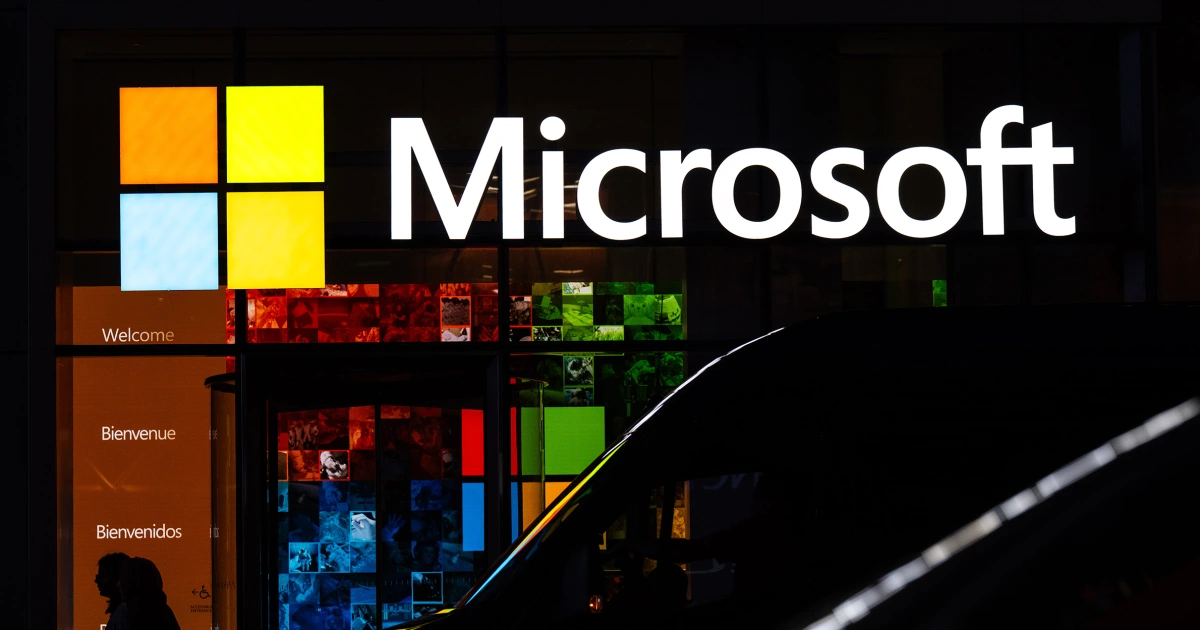
Microsoft has cut off some services to a unit in the Israel Defense Ministry after investigating allegations that it was using Microsoft cloud products for the mass surveillance of Palestinians.
In a blog post published Thursday, Microsoft President Brad Smith said the move came after reviewing an Aug. 6 report from The Guardian that said an Israel Defense Forces intelligence unit had used the company’s Azure storage service to collect and store recordings of Palestinian civilians’ phone calls.
Azure is Microsoft’s primary cloud-computing service, with millions of monthly active users around the globe. However, the Guardian — citing interviews with 11 sources, including at Microsoft and among Israeli intelligence officials — alleged that the unit had access to “a customised and segregated area” within Azure’s cloud platform.
Smith did not directly corroborate that assertion but said the company’s review had found evidence that “supports elements of the Guardian’s reporting,” including use of Azure storage capacity in the Netherlands and of certain artificial intelligence services. Smith did not provide additional details.
Microsoft has since informed the Israeli Defense Ministry, which oversees the IDF and its intelligence units, that it was disabling access to the unit’s ability to use parts of Azure’s cloud storage service. Microsoft did not name the unit it was targeting in its action, but the Guardian report was centered on Unit 8200, seen as Israel’s equivalent to the U.S. National Security Agency. NBC News has not confirmed that report.
“We do not provide technology to facilitate mass surveillance of civilians,” Smith said. “We have applied this principle in every country around the world, and we have insisted on it repeatedly for more than two decades.”
Smith said Microsoft would continue other work designed to “protect the cybersecurity of Israel and other countries in the Middle East.”
A spokesperson for the Israeli Defense Ministry said it had no comment. In response to the Guardian’s August report, an Israeli official first said its work with companies such as Microsoft was based on “legally supervised agreements,” but then later stated that “Microsoft is not and has not been working with the IDF on the storage or processing of data.”
The Guardian article was the latest in a yearslong series of media reports alleging that the IDF has been using software products created by U.S. tech giants, including Microsoft, in its war in the Gaza Strip. The reports have led to internal protests by Microsoft employees, some of whom have subsequently been terminated according to documents reviewed by CNBC. Late last month, Microsoft said it asked police to remove people it said had improperly entered its headquarters as part of a protest action.
Microsoft has said it doesn’t retaliate against employees who express their views but would respond to anyone deemed to have made threats.
The reports of use of Microsoft products by Israel’s military have helped fuel a protest group, No Tech For Apartheid, created in 2021, aimed at pressuring Silicon Valley businesses to cut ties with Israel. The group includes a Microsoft-focused offshoot, No Azure For Apartheid, that has focused on the Redmond, Washington-based corporation.
In a statement, a representative for No Azure for Apartheid celebrated the announcement, calling it “significant and unprecedented,” but noting that “Microsoft has only disabled a small subset of services to only one unit in the Israeli military. The vast majority of Microsoft’s contract with the Israeli military remains intact.”
Israel’s military campaign in response to Hamas’ Oct. 7, 2023, terrorist attacks — which it has said killed approximately 1,200 Israelis and foreign nationals and led to some 251 hostages being taken — has claimed the lives of nearly 65,000 Palestinians, according to Palestinian health officials.



